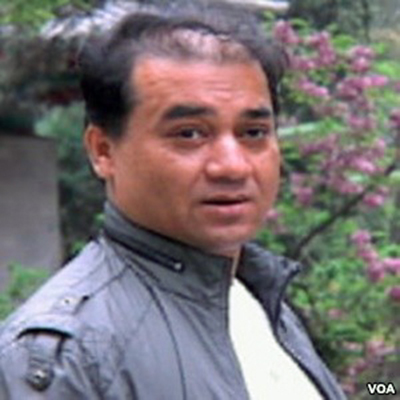STRASBOURG/BEIJING, (Reuters) – The European Parliament awarded its annual prize for the defence of human rights on Thursday to jailed ethnic Uighur economics professor Ilham Tohti, angering Beijing which called him a criminal and a terrorist.
Uighur rights advocate Tohti was jailed for life in China in 2014 on separatism charges that were widely denounced at the time in Western capitals.
The European Parliament chose him for his activity to foster dialogue between Chinese people and the mostly Muslim Uighur minority who live in China’s western region of Xinjiang.
“The parliament calls on the Chinese authorities to release him immediately,” the assembly’s president, David Sassoli, told lawmakers at a plenary sitting in Strasbourg, announcing the prize.
The move infuriated China.
“We do not know about this prize you mention. What we do know is that Ilham is a criminal who was sentenced in accordance with the law by a Chinese court,” the Foreign Ministry said in a statement sent to Reuters.
China “hopes that all sides respect China’s internal affairs and judicial sovereignty and not inflate the arrogance of terrorists”.
Beijing has rejected any criticism of its policies in Xinjiang, where the government has faced international opprobrium for placing up to a million Uighurs in what Beijing calls de-radicalisation facilities.
Tohti, an ethnic Uighur, has criticised the government for not giving Xinjiang and its Turkic-speaking Uighurs more autonomy, but had always sought to work inside the system.
He had taught at Beijing’s Minzu University, which specialises in ethnic minority studies.
China has said Xinjiang faces a threat from Islamist militants and separatists.
It rejects all accusations of mistreatment and denies mass internment, saying it is simply seeking to end extremism and violence in Xinjiang through education, and that it is offering Uighurs better employment prospects with vocational training.
The EU parliament’s prize, named after the late Russian dissident Andrei Sakharov, has been awarded annually since 1988 to honour individuals and organisations defending human rights and fundamental freedoms.
Li Fangping, the lawyer who represented Tohti at his trial in 2014, told Reuters, he hoped the prize could give his former client some peace.
But he added: “I think it will be very hard for him to learn of this news.”
Phil Bennion, a British Liberal Democrat member of the European parliament, said while lawmakers were happy he had won the prize, they also could not be sure he would get the news.
“He has been in solitary confinement since his imprisonment in 2014, and for the last 2 years has been denied visiting rights by the Chinese authorities. Even his family has not seen him since 2017,” he said.






